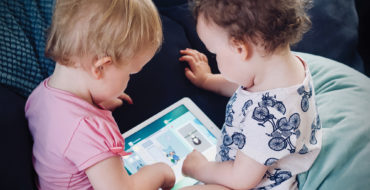As parents we learn about the benefits of regular doctor visits, immunizations, physical activity and proper nutrition.We understand the need for stimulating toys and activities to promote brain development.
However, we may overlook the importance of nurturing our children’s emotional development. Every child is unique. Some children are cheerful and adaptable while others are moody and easily distressed. Emotion and behavior are based on the child’s temperament and developmental stage. Keeping these truths in mind, utilize the tips below to guide your child into an emotionally healthy future.
Why is emotional development important?
- Emotional wellness provides a sturdy foundation for future social development.
- Developing emotional maturity is necessary for the extension of empathy towards others.
- It enables your child to resolve conflicts without physical aggression.
- Teaching your children to regulate and recognize their own emotions increases self-awareness and self-esteem.
- Emotionally mature children perform better in school.
Children who do not mature emotionally are at risk for peer rejection, unhealthy attachments, mental health issues and criminal behaviors.
What can parents do to promote healthy emotional development?
- Don’t scold your child for strong emotions. Your child needs to know that it is okay to express his emotions. However, you will need to teach him proper ways to express his feelings without harm to himself or others. Children who are taught these skills early are better able to handle negative feelings as adults.
- Read stories to your child about feelings. Ask questions about people you encounter such as, “Do you think she is happy or sad?” or “Why do you think she is crying?”
- Model healthy emotional behaviors. Your child is always watching and learning from your example. When you manage your emotions in a positive way, your child will do the same.
- Seek to develop “emotional intimacy” with your child. Show unconditional love and affection every day! You can demonstrate how much you value and appreciate him through hugs, kisses, rough and tumble play and snuggling. Kind nicknames that your child enjoys such as “champ” or “princess” offer a verbal way of creating emotional intimacy.
- Validate emotions by being available to listen when your child needs to talk. This reassures him he is important to you.
- Puberty is a time of identity development and a natural strive towards independence. Teens experience strong emotions as they navigate the pressures of relationships and expectations. When emotions run high suggest that both of you take a “time out” and revisit the issue once everyone has calmed down.
- Never condemn or shame your teen’s feelings. While they may seem immature and trivial to you they are very real to him. It is important he feels he has a “safe haven” where he can express his feelings freely. Bottled up emotions can lead to anxiety, depression and anger.






